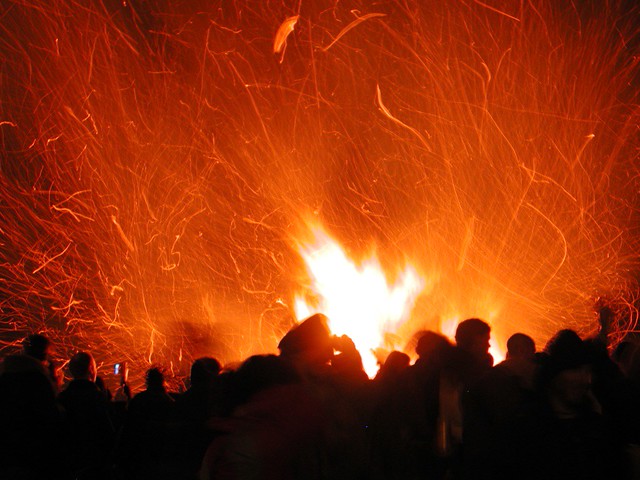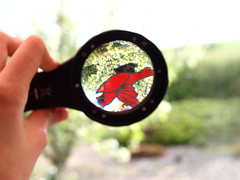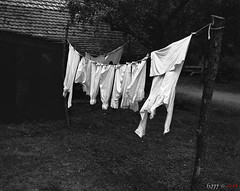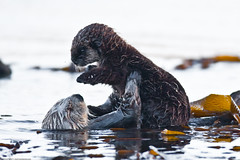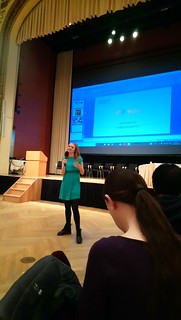| Proto-Celtic |
*lasketi = to burn
*laxsaros = shining, burning
*losk-os = ? |
| Old Irish (Goídelc) |
loscid = to burn
loiscnech = burning
loscud = burning, fire
fo·loisci = to scorch |
| Middle Irish (Gaoidhealg) |
loscid, laiscedh, losced = to burn, consume by fire, lay waste by fire, inflame, afflict, revile |
| Irish (Gaeilge) |
loisc = to burn, fire, scorch, sear, sting – (verb noun = loscadh)
loiscadh = burning, searing, scorching, stinging
loisceanta = flaming, fiery
loisceantacht = fieriness
loisceoir = incinerator
loiscneach = firing, firewood, caustic, burning, stinging, pain, scorched, arid, fiery, fierce
loiscní = fiery intensity, fieriness, aridity, burned, parched, condition |
| Scottish Gaelic (Gàidhlig) |
loisg [l̪ˠɔʃɡ̊ʲ] = to burn, inflame, consume, parch, singe; scorch, scald; fire (a gun) – (verb noun = losagadh)
loisgeach [l̪ˠɔʃgʲəx] = burning, fiery, flaming, incendiary, inflammatory, igneous, caustic, corroding
loisgeadair [l̪ˠɔʃgʲədɪrʲ] = burner, incinerator
loisgte [l̪ˠɔʃdʲə] = burnt, scorched, scalded, drunk |
| Manx (Gaelg) |
losht = to burn, burn up, burn away, incinerate, cremate, fire, alight – (verb noun = lostey)
loshtee, loshtit = igneous, burnt
loshteyr = arsonist, firebrand, incendiarist
loshteyder = arsonist, burner, incinerator
yn-loshtey = combustible |
| Middle Welsh (Kymraec) |
llosc = burning, scalding, burn
lloscadwy = combustible, burning, fiery, scorching
lloscy, llosci, llosgi = to be on fire, blaze, be alight
lloscetic, lloskedic, llosgedic, lloscedic = burnt, charred, burning, fiery |
| Welsh (Cymraeg) |
llosg = burning, scalding, burn, scald, fire, conflagration, blaze, arson, singeing, inflammation
llosgadwy = combustible, burning, fiery, scorching
llosgi [ˈɬɔskɪ / ˈɬɔski] = to be on fire, blaze, be alight, be burnt or be fired, burn up, burn down, burn away; be inflamed, smart, sting, be sunburnt; be inflamed with anger, passion, etc
llosg(i)edig = burnt, charred, burning, fiery |
| Middle Cornish (Cernewec) |
losc = a burning, inflammation, searing
lescy, loscy = to burn, to be burning
losow, lusow = ashes |
| Cornish (Kernewek) |
leski [lɛski] = to burn
losk = burning, combustion
loskadow = flammable
loskrias, loskriades = arsonist
loskrians = arson
loskven = sulphur
loskvenydh, loskvena = volcano |
| Old Breton |
lescsit = to burn |
| Middle Breton (Brezonec) |
lisquiff, lesquiff, losquan = to burn
losquadur [los.ˈkɑː.dyr] = burning |
| Breton (Brezhoneg) |
leskiñ, loskañ [ˈles.kɪ̃] = to burn, calcine, irriate
losk = burnt, burning
loskadur [los.ˈkɑː.dyr] = burning
loskus = burning |
